I got top 20 on my first product hunt launch by doing a homework assignment
November 29 2023Ebenezer Zergabachew
#product
I believe there are patterns to innovations. Patterns that, if we observe carefully, can inform us on how to create value. I don't think there's anything new under the sun, but rather new ways of delivering the same value. Whether that value is happiness, health, wealth, or time saved. One domain of value that people have always wanted is knowledge.
The Gutenberg printing press had a revolutionary impact on civilization. It democratized access to information. By reducing the cost of printing a book to a fraction of the original price, the Gutenberg printing press allowed for knowledge to be easily disseminated. You didn’t have to be wealthy to be able to purchase books.
It leveled the playing field.
The internet, web browser, and the rise of mobile have done the same thing but at an even larger scale. Now, the marginal unit of production per unit of information is (almost) zero. The sum total of human knowledge is at our fingertips. And we can access (most of) it for free.
Modern technology has allowed us to be able to read, watch, and consume zetabytes of content.
This introduced a new problem however; there’s a lot of garbage on the internet. Most it is irrelevant or meaningless. Some of it is harmful. With all of the shit out there, how do we identify what is valuable, trustworthy, legitimate, and true? How do we separate the wheat from the chaff? I believe tremendous value can be created in solving this problem.
One thing I’ve come to realize is that people pay for structure and presentation, not necessarily information itself. Why go to college, buy online courses, or participate in programs when you’re able to access all the information you could ever want in a library or on the internet? Because its more convenient if someone presents the right information in the right format in the right order.
I think the right abstractions can make a huge difference when dealing with knowledge.
Information is a commodity and the market is oversaturated with it. I hypothesize that curating information by finding the needles in a haystack and packaging them nicely is a good framework for value creation.
Stumbling Upon an Opportunity
I wanted to put this theory to the test in the context of martial arts. I’ve found myself scouring the internet for resources on how to get better head movement, footwork, punching power, flexibility, etc. And I know other people have this problem too because I’ve seen reddit posts with people asking for the same things. The problem is very clear. There isn’t a centralized platform for martial arts knowledge. This domain is not democratized yet.
And having looked around, a lot of the preexisting solutions to this problem either have a shitty UI or are locked behind a paywall. That tells me two things:
a) I can have a moat (or at least a competitive advantage) through design
b) If other people are making money, I can make money
So I had an idea that lied at intersection of three things that I love to do.
I like to draw. I like to code. I like to fight.
The Iterations
This is how I initially came up with the idea of Combat Crafter. At first, it was a blog I set up and a PDF I had made on the foundations of boxing. I illustrated various techniques and designed an appealing product. I began writing blog posts to drive traffic but I quickly scrapped that idea because I hated the nature of that work. I did like the idea of selling information products but content creation TAKES TIME AND EFFORT. Time and effort being put into something I wasn’t enjoying. So I had put the project on a hold.
It wasn’t until I attended my first hackathon where I got inspired to work on something similar but different. A martial arts training platform with two features. A technique library, and a workout library. Pretty simple. So I got to work.
I was working on the project solo and built the frontend with react. I used firebase for the backend, and procreate for the illustrations. I used the ChatGPT API to dynamically generate workouts that users can access by consulting with ‘Cyber Sensei,’ an AI martial artist that can generate workouts for you based on various parameters (boxing, muay thai, cardio, strength, difficulty, etc.) It was a cool feature but I was running into bugs with my environment variables so I wasn’t able to ship that feature in time for the hackathon. The workouts persisted in the database and I deployed a mobile responsive web app that I presented at VTHacks. To my utter dismay, I didn’t win the best UI category.
I guess it is what it is.
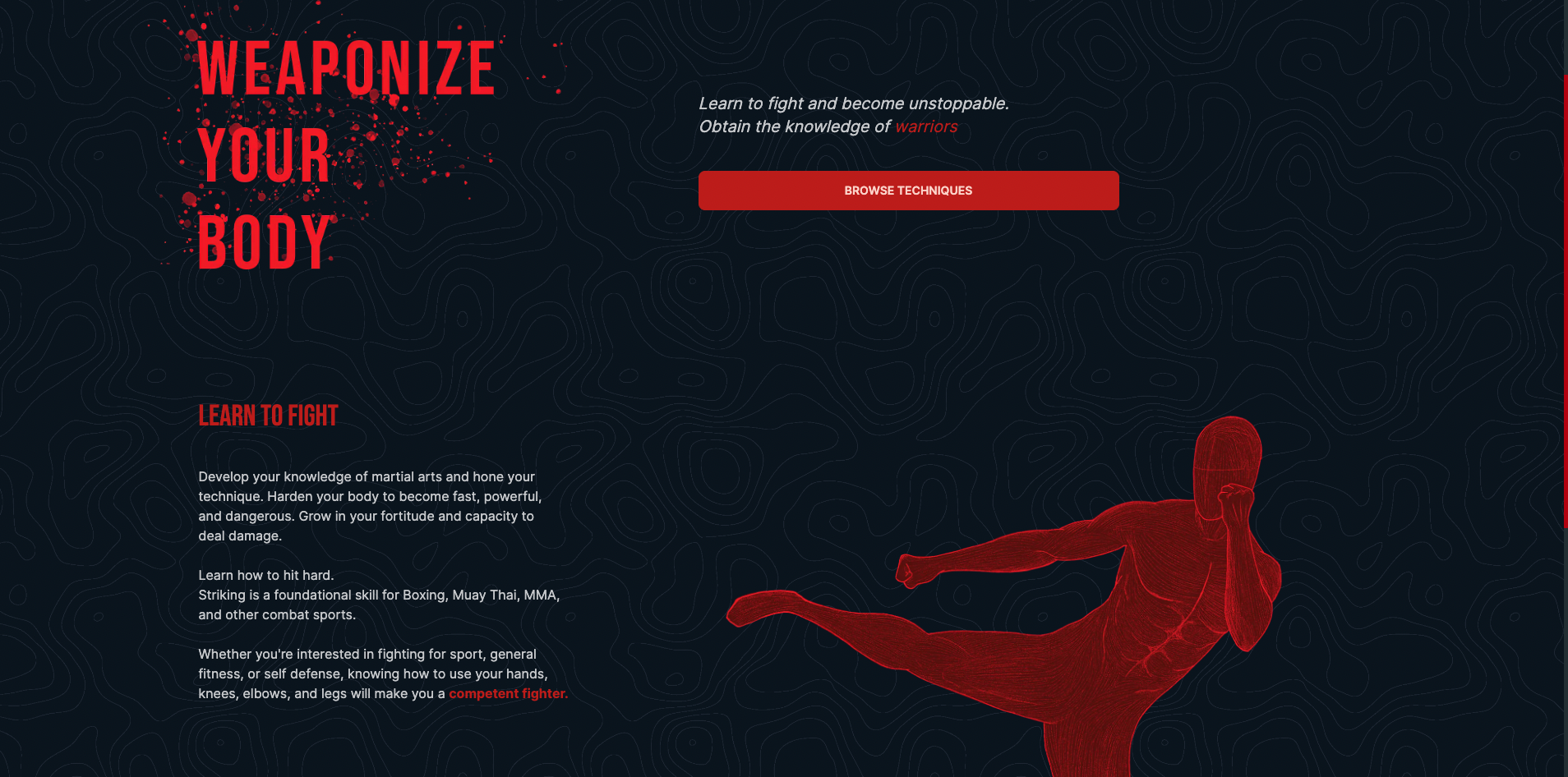
After copious quantities of caffeine and 36 hours of being a code monkey, I had something on my hands. But I remember asking myself: “What do I do with this?” It was static content served on a webapp that looked cool, but it wasn't an engaging product. At its core, it wasn't much different from the initial blog. As a product, it needed a lot more work.
As part of my Foundations of Entrepreneurship class, we were tasked with doing customer interviews with the objective of identifying their pain points and struggles.
So I asked a handful of my sparring partners about their challenges with fighting and the role of technology in it. I did gain some useful insights. One of their biggest challenges is finding people to spar with. So I guess I could have made a sparring matchmaker. Kind of like tinder, but for fighters. I imagine the taller guys would struggle with getting matches, because who would want to fight a 6’7 behemoth of a man? Everyone would swipe left on him. I guess this would finally be the app for short people.
I did like the idea of a platform for matchmaking, but that’s not solving the initial problem of finding quality training material. Its still a feature I might implement since it definitely solves a problem for the same target market, but its not something that gets me excited. Tinder for fighters is something I’d build as the coding equivalent of a shitpost. I’d do it for laughs but I wanted to work on a product that I’m passionate about. I also want to be able to monetize it and I doubt people will pay money to get punched in the face more. I definitely want to make money off this, but I don't want it to be a business.
What I want is a really cool side project that makes me money. I’m not sure what the line between these two is. I think the biggest difference, at least in my eyes, is that a startup can die but a side project can be picked up again. Something I can pick up when I’m in the mood and drop anytime with very little consequences. I can’t do that with a startup. If a startup is a marriage, what I want with Combat Crafter is friends with benefits.
There was a time when I’d fantasize about Combat Crafter being huge, but I doubt I have the bandwidth for it because I’m already involved in two other startups, one of which I founded (and that one seems to be more promising). What I want is one successful startup and a cool side project. If Combat Crafter blows up then so be it.
I can make the argument that not every product should be a startup, and not every startup should raise money, but thats a post for another time.
For a while I felt lost from a product point of view because I didn’t understand exactly what the value is that Combat Crafter would be providing. And the features that would act as the mechanism for delivering that value simply wasn’t clear to me. And I was occupied with other responsibilities so I wasn’t thinking about Combat Crafter too much.
Thankfully, my entrepreneurship class required us to validate our idea for an assignment by collecting emails for a landing page. As part of an in-class assignment a few weeks ago, I had scrapped the features from the hackathon and reduced the app into a landing page. The next assignment was distributing it to collect emails.
And that homework deadline was coming up so I had to get to work with Combat Crafter. The assignment was due on the Monday the 27th, right after thanksgiving break, and having had procrastinated until the Friday before, I needed to figure out how I can instantly get views on my page. So I chose the indie hackers drug of choice.
The Launch
I didn’t really have any expectations with launching on Product Hunt. To tell you the truth, I just wanted to get that assignment out of the way. Looking back at it, its kind of crazy that I broke top 20 because I really half assed the launch. I didn’t even bother learning how to launch on PH or researching tactics. I just did it. And heres how.
I made three banners that were super simple:
- The Title
- The Benefit
- Call to Action
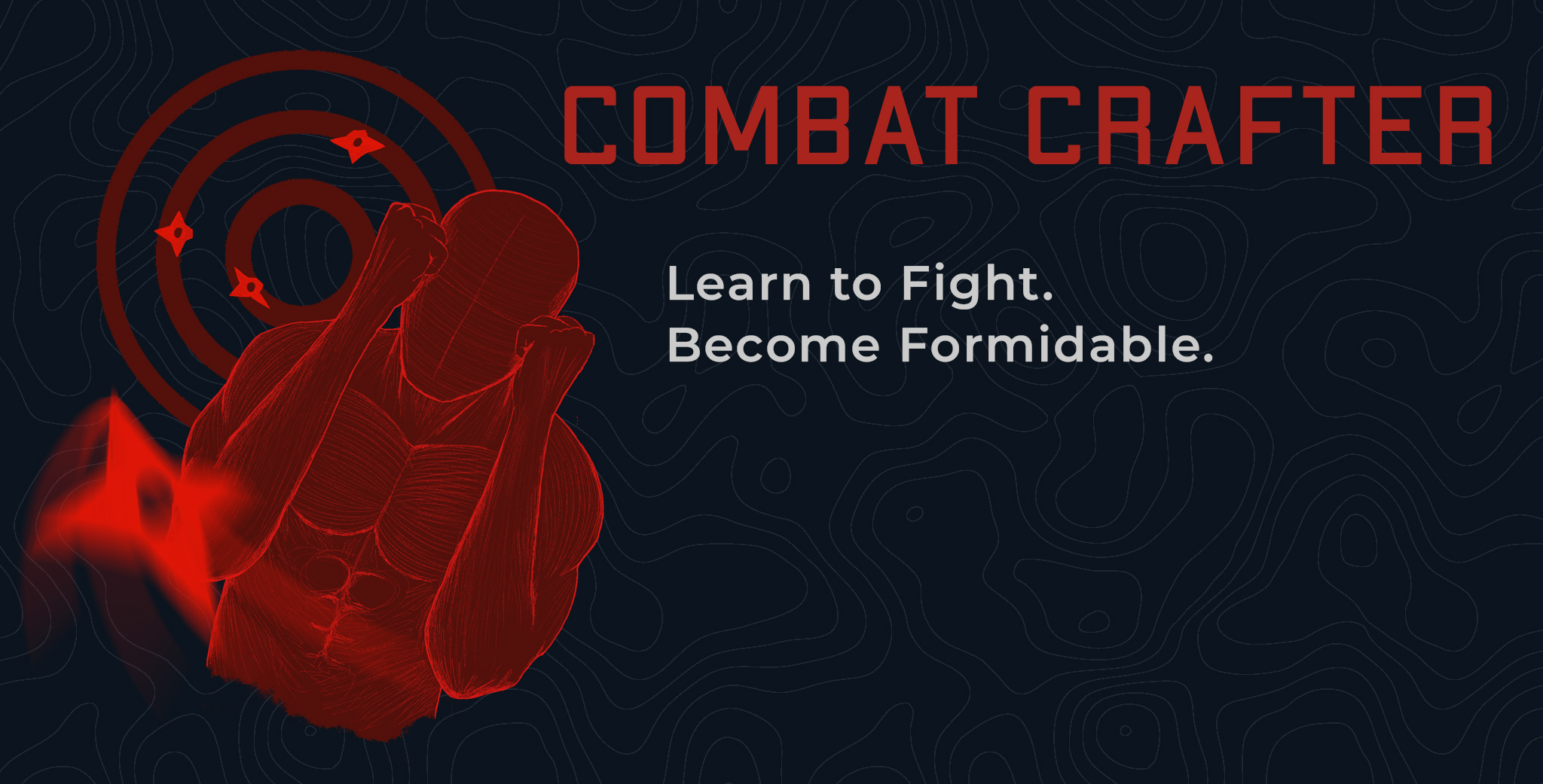
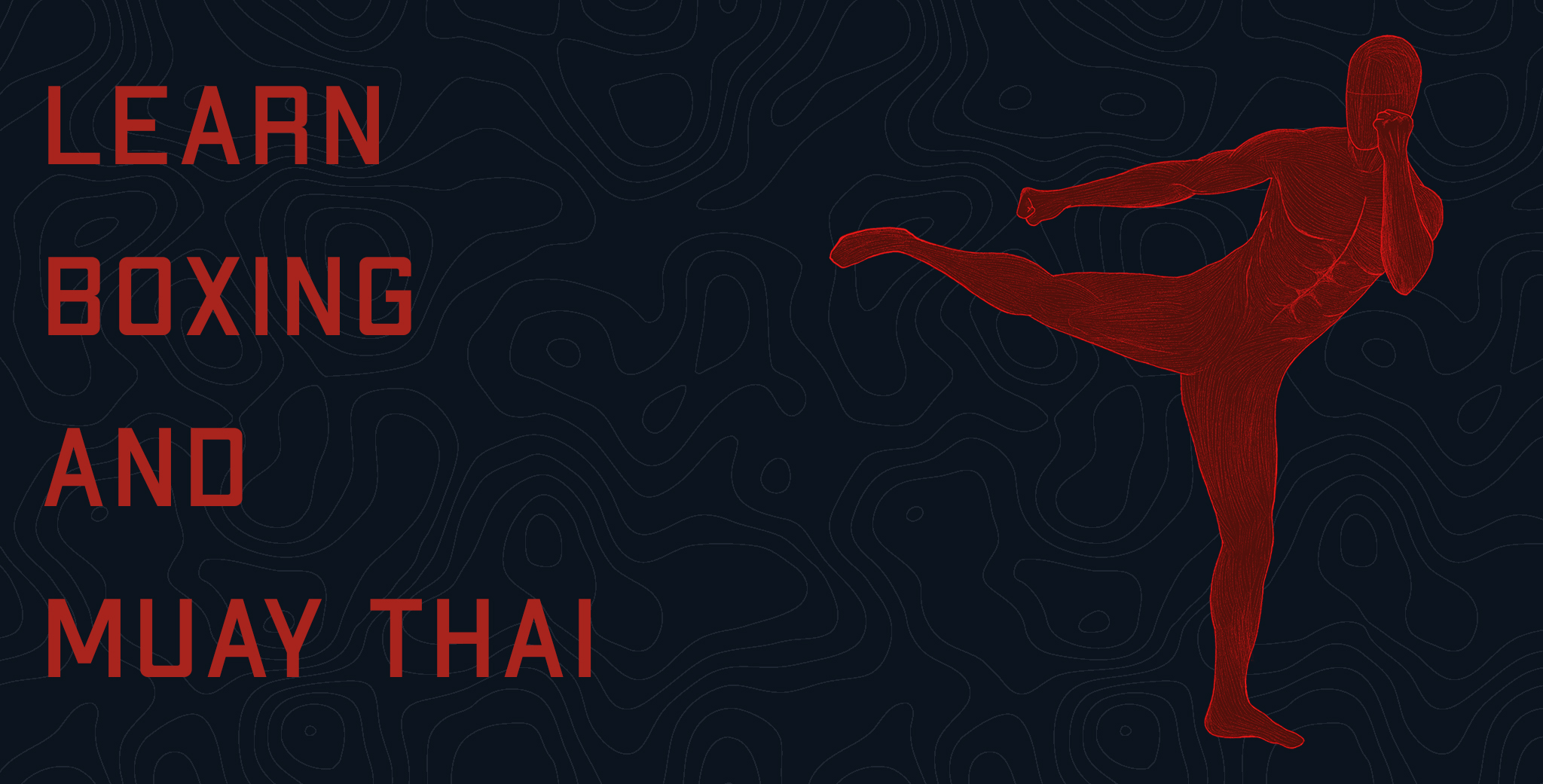
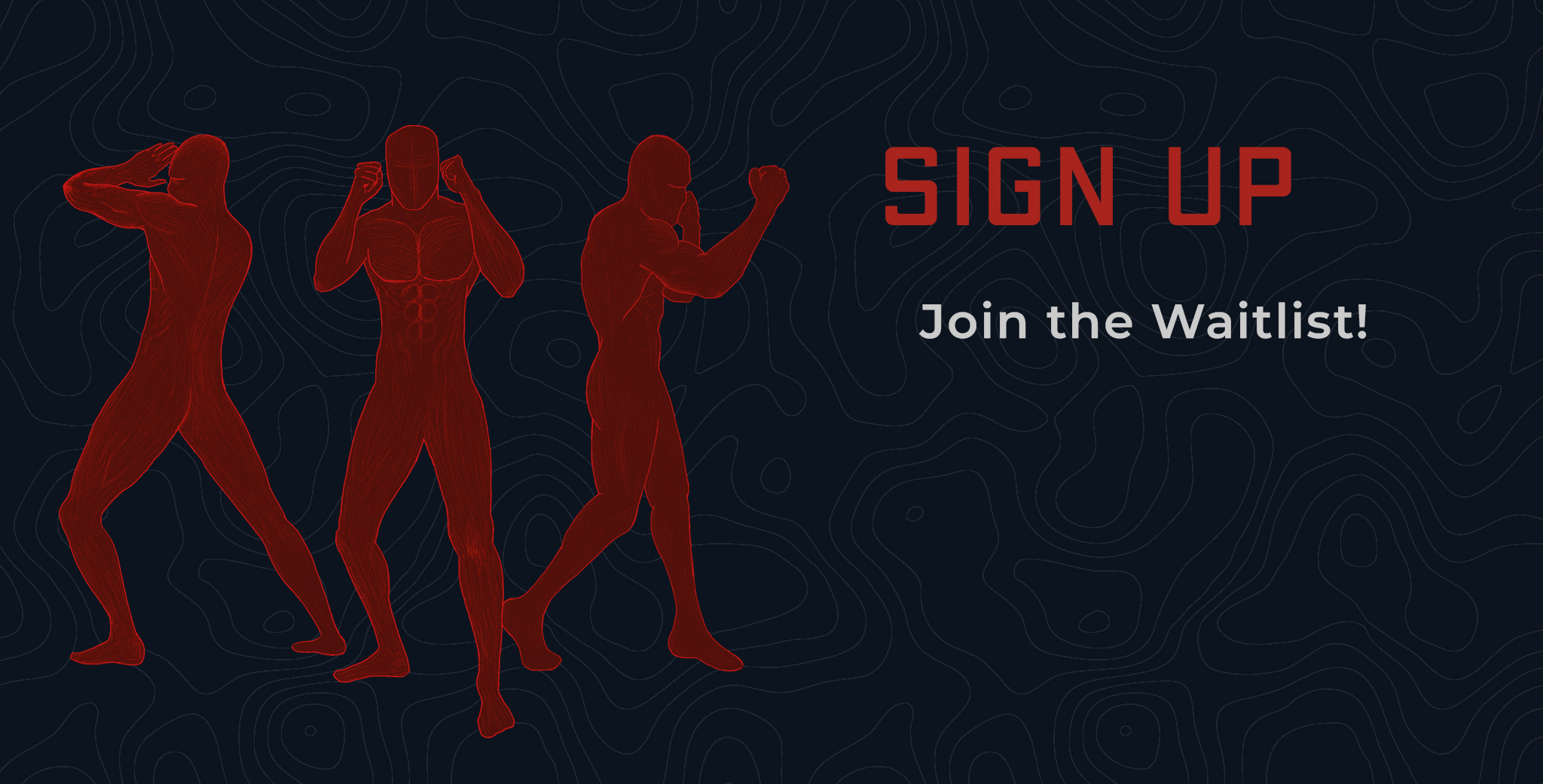
The description was just one sentence: “Combat Crafter is a platform that curates information, resources, and training material for boxing and Muay Thai.”
No video. No spamming Hacker News. No Twitter. No Reddit. None of that shit.
I checked on the launch on Monday during class and saw the results for the first time:
#19 for the day
#170 for the week
114 followers
73 upvotes
19 comments
And a little under 40 sign ups
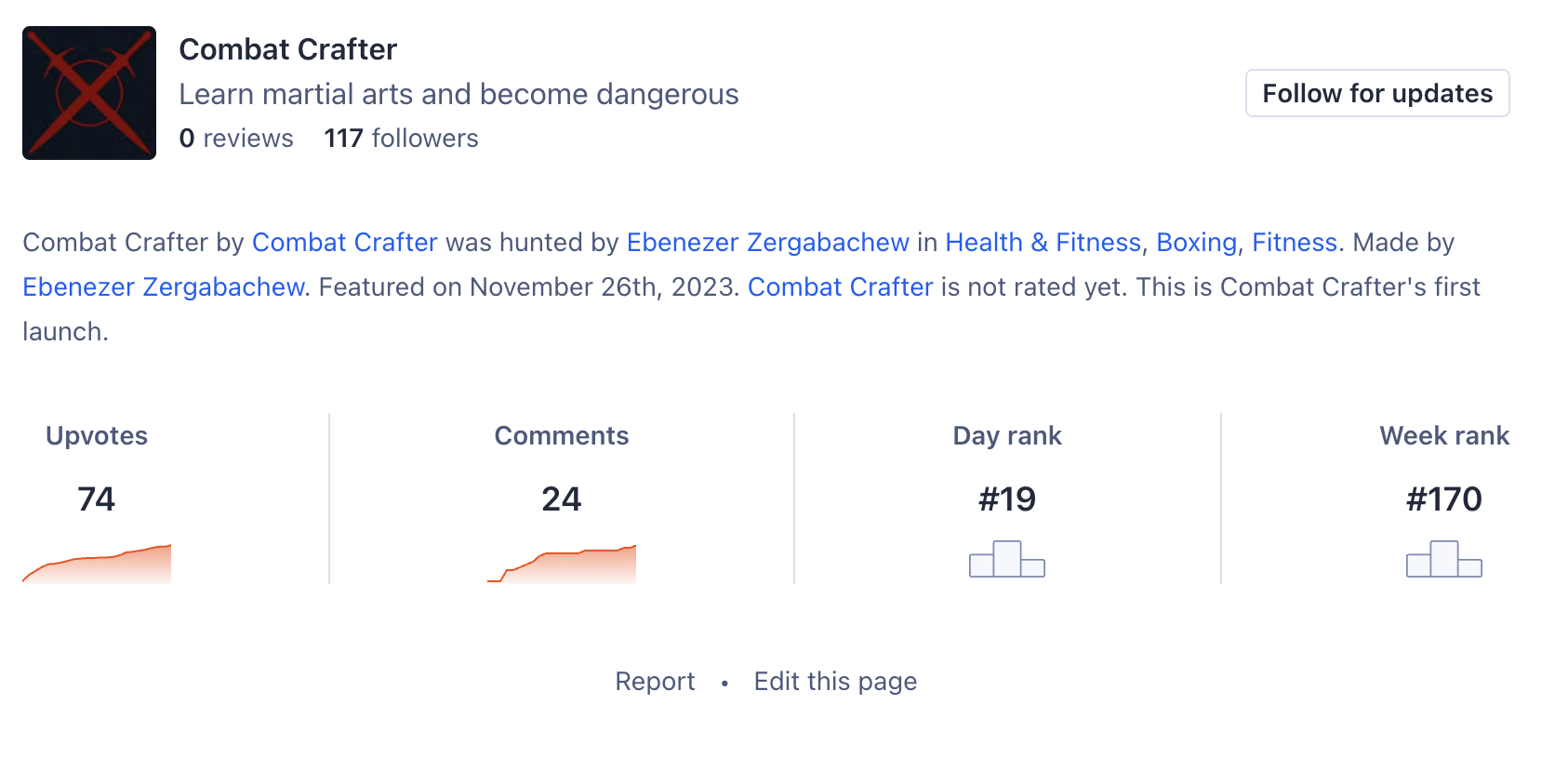
Unfortunately I don’t know how much traffic I got because I forgot to include the analytics in the landing page after I pushed my changes.
This isn’t nothing crazy, but now I get to say “I got top 20 on my first product hunt launch by doing a homework assignment.” Is that a flex? I sure hope so. But it doesn’t mean anything. I think product hunt is ridiculously overrated. Unless your target market are developers that crawl on product hunt you’re likely not going to get much value from launching on it.
Its a circle jerk of founders coping for not having users.
Product Hunt can definitely be useful in a lot of cases. I have a friend who had 500+ upvotes for his product and ended up almost getting banned on vercel for exceeding his bandwidth for his free plan. In his case he did get a destructive amount of traffic (250k views in 3 days). Product Hunt can be great for getting early adopters if you have an excellent product.
But good traffic is not a replacement for a good product. A great launch is not a replacement for great customer interviews, iterations, and an ACTUAL marketing plan.
Product Hunt metrics are vanity metrics.
I think the only reason Combat Crafter popped off is because:
a) Combat Crafter is a unique product. Not another dev tool, productivity platform, or ChatGPT wrapper.
b) My illustrations look cool
c) Luck
I guess now that I have a handful of signups, I got a little bit of validation and some early adopters to test out my idea. I was struggling with what features to build but I guess now I’ll build the features I advertised on the landing page and see what happens.
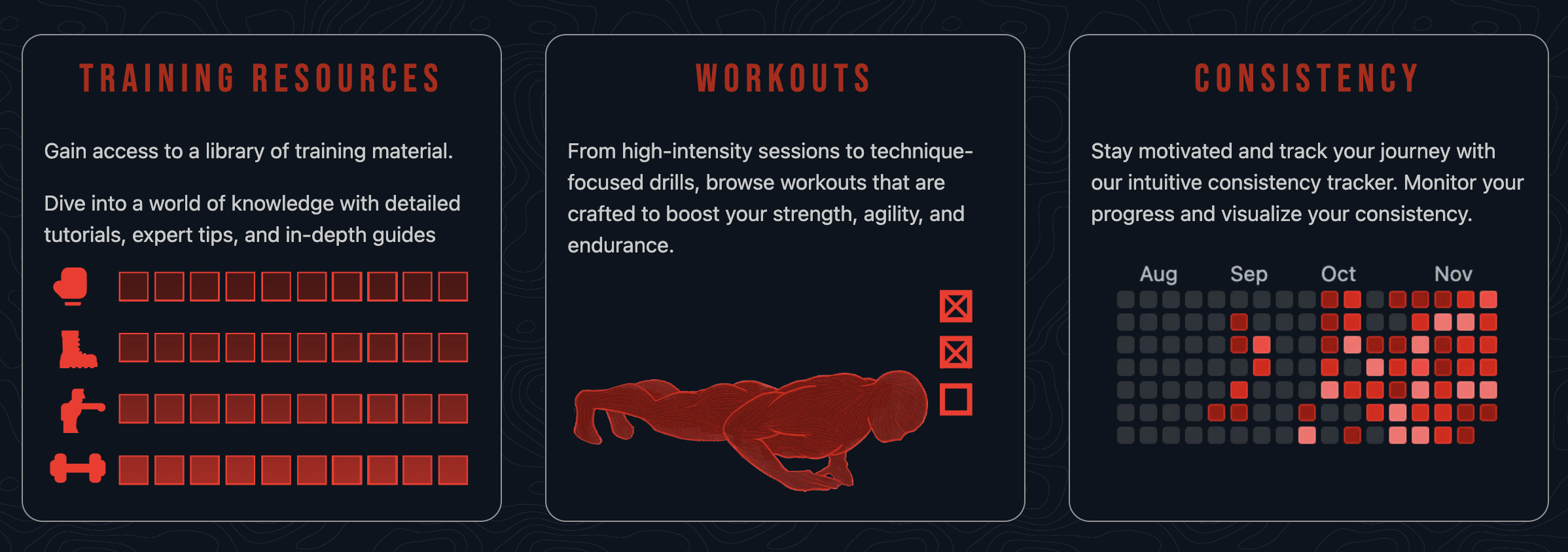
This does give me hope for getting that coveted product of the day though. If I got top 20 by putting in 20% effort, what would happen if I put my all in it? What would happen if I made a dope ass video, did my research, and crafted a bulletproof strategy?
What would happen if I took this seriously?